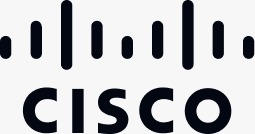
CCNP Collaboration (CLCOR)
- Course Fee
- ₹30000
- Duration
- 120 hrs.
- Level
- advanced
This course is designed for anyone seeking CCNP Collaboration - Implementing and Operating Cisco Collaboration Core Technologies (CLCOR) certification and gives in-depth knowledge to design, deploy, configure, manage, and troubleshoot core collaboration and networking technologies that includes infrastructure design protocols, codecs, and endpoints, Cisco Internetwork Operating System (IOS) XE gateway and media resources, call control, and Quality of Service (QoS). This course will help candidates prepare for CCNP Collaboration and CCIE Collaboration certifications and advanced-level collaboration roles. This is a lab-intensive course and objectives are accomplished through hands on learning.
Enroll NowCourse Metadata
- Training Type
- ClassroomOnlineCorporate
- Batch Timings
- Early Morning
- Morning
- Afternoon
- Evening
- Fastrack
- Morning
- Afternoon
- Evening
- Sat / Sun
- Sunday Only
For the latest training schedule, please
check the Schedules.
Weekdays
Weekends
Training is available in small groups as well as on
one-to-one basis. Get in touch.
Introduction
This 120hrs (Lectures + hands-on Lab) CCNP Collaboration- Implementing and Operating Cisco Collaboration Core Technologies (CLCOR) training is designed for personnel involved in design, deploy, configure, manage, and troubleshoot core collaboration and networking technologies. Candidates will learn the infrastructure design protocols, codecs, and endpoints, Cisco IOS-XE gateway and media resources, call control, and Quality of Service (QoS). This course covers advanced collaboration topics that includes signaling protocols like SIP, H323, MGCP, Skinny SCCP, Integrating CUCM with LDAP, Codecs, dial plan, cloud calling options, toll fraud prevention, CUCM cluster, Deploying the Webex app in a CUCM, Cisco Unity, (MRA), QoS and its models.
This course will help candidates prepare for CCNP Collaboration, CCIE Collaboration certifications and advanced-level collaboration roles. This is a lab-intensive course and objectives are accomplished through hands on learning.
The key to a high success rate is based on the program’s objectives as follows:
- The course contents are based on Cisco Collaboration (CLCOR) course outlines.
- Dedicated Monitoring to evaluate and report candidate’s progress.
- Extensive hands-on lab exercises.
- Industry acclaimed, experienced and certified instructors.
Successsful Career
RST Forum has trained more than 700,000 students to date. Many students have gone on to successful careers in a variety of industries, while others have harnessed the entrepreneurial spirit and knowledge they acquired in RST Forum to start their own businesses and create new jobs.
Labs on cloud
RST Forum uses Cloud computing to efficiently provide “Platform As A Service” (PAAS) to its students enabling them to quickly access Technology Racks over the internet and practice lab exercise from home These Racks are populated with latest equipment’s required for practical exercise’s.
Web Forums
Our web based forum allows its users to ask, hundreds of technical experts about their technology and certification problem. RST forum is a tight knit community of working professionals that provide timely help on technical, certification and design related queries.
Enroll for this course now and boost your IT & Engineering career.
Master CCNP Collaboration (CLCOR) today.